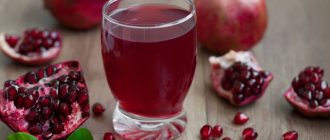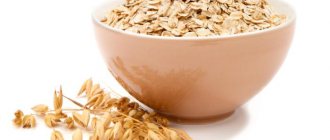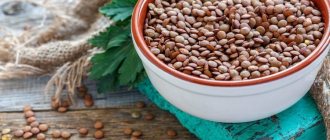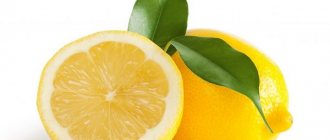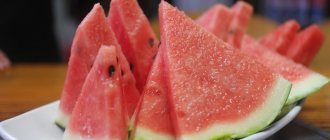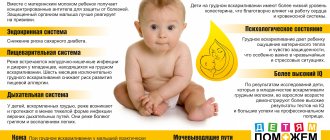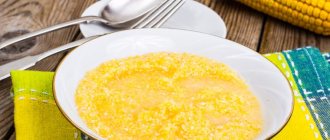Views: 224
Persimmons contain vitamins, microelements, and dietary fiber, but this fruit has a number of contraindications for consumption. How permissible is it for nursing mothers to consume this fruit and how can it be dangerous for the baby? It is better to study the characteristics of persimmons, possible dangers for a young mother and baby, as well as ways to eat them in advance.
Is it possible to eat persimmons while breastfeeding?
Exotic fruits are not recommended to be introduced into the diet of a young mother, especially in the first months after the birth of the child. Considering the rich vitamin composition of persimmon, doctors allow its use. As a result, the mother will be able to recover faster after childbirth, and the baby will not be at risk of calcium deficiency.
Attention! The introduction of any new product into the diet of a breastfed woman should be gradual and as careful as possible.
As a result, mother and child:
- blood vessels will be strengthened;
- resistance to dermatitis will improve;
- resistance to viruses will appear;
- metabolism will speed up.
In addition, the fruit has a diuretic effect and neutralizes the work of staphylococci. If, when gradually introduced into the mother’s diet, the child does not develop a rash or other reaction to persimmon, then its consumption in small quantities is possible and even beneficial.
Reference! It is recommended to start eating this fruit no earlier than the child reaches 4 months of age.
Useful properties of persimmon
Persimmon is translated from Greek as “food of the gods.” You can also hear the following names: “heart apple”, “Chinese peach”, “winter cherry”. This variety of definitions is not accidental, since this juicy fruit contains many useful substances.
- Cellulose. Helps cleanse the intestines, prevents the formation of fecal stones (is an excellent prevention of constipation).
- Iron. Responsible for the process of hematopoiesis, ensures normal metabolism. The lack of this element leads to anemia, which can result in developmental delays in the baby.
- Phosphorus and calcium. Promote the renewal of tissues, cells, strengthening bones, nails, hair and teeth, which is especially important immediately after childbirth.
- Potassium and magnesium. Calm the nervous system, support the functioning of the heart and blood vessels, and prevent seizures.
- Provitamin A (beta-carotene). It has anti-sclerotic properties, prevents blockage of blood vessels, helps preserve the beauty of skin, hair, teeth, nails, and improves vision.
- Vitamins C and P. Stimulate the immune function of the body, protect against viral and bacterial infections, help form bone and muscle tissue, and strengthen the walls of blood vessels.
- Vitamin A. Has anti-cancer properties, increases the activity of the production of sex hormones, prevents the development of conjunctivitis and allergies. This element is essential for the growth of new cells.
- Iodine. Improves mental activity, stabilizes the function of the immune system, and has a beneficial effect on the functioning of the thyroid gland.
- Fructose and glucose. They give energy, improve performance, and provide the brain with sufficient nutrients.
Whether a nursing mother can eat persimmon is also supported by the fact that this fruit:
- prevents the formation of kidney stones;
- removes toxins and other harmful substances from the liver;
- rejuvenates the body;
- reduces the likelihood of dermatitis;
- prevents rickets;
- is a prophylactic against cystitis and mastopathy.
The product consists of 80% water, which has the most positive effect on the quantity and quality of breast milk.
What varieties of persimmon can you choose?
When purchasing any products, a young mother should pay special attention to their quality, the same applies to fruits, including persimmons. The fruit must be ripe, without signs of rotting or spoilage. To choose a tasty fruit you need:
- give preference to bright orange persimmons;
- choose varieties with soft, delicate jelly-like pulp;
- sweet varieties are preferable to tart ones, which are best avoided temporarily;
- carefully examine the peel; the presence of spots, stripes and dots may be a feature of the variety or a sign of spoilage; you should not eat products of questionable quality.
In order for the product to bring maximum benefit and not harm the child, the mother must understand the varieties of this fruit and buy only the sweetest and ripest.
Attention! Always after the mother uses a new product, you need to monitor the child’s reaction.
Eating persimmons is allowed no more than 300g per day, and doctors do not recommend consuming any fruit on an empty stomach. When breastfeeding, it is better to choose the following varieties of persimmon:
- Sharon is the rarest, but very tasty fruit. It appeared by crossing with an apple tree and is considered the most harmless for a child.
- The wren is popular, and as a result, other varieties of persimmon are often sold under its guise. It is better to be as attentive as possible - the ripe fruit of this variety has a brown flesh color, jelly-like and very sweet.
The remaining varieties should be taken only if you are confident in their ripeness and sweet taste. A pale fruit will be unripe and will do more harm than good.
What are the features of persimmon
In order for the body to recover faster after the birth of a child, it is useful to eat a large amount of fruits and vegetables. However, breastfeeding does not allow the mother to quickly get into shape, due to different reactions to foods in the child. Persimmon differs from other fruits:
- high iron content;
- relatively low calorie content (70 kcal);
- abundance of dietary fiber.
All trace elements and vitamins of the fetus help the body of mother and child in recovery:
- Vitamin C helps the immune system;
- PP will improve skin and hair;
- Pectins relax the body;
- Calcium restores teeth and bones;
- Iron will help raise hemoglobin after a large loss of blood.
In addition, the fruit contains ascorbic acid and vitamin B, magnesium, phosphorus, pectin and other useful components that help to better cope with stress after childbirth, improve well-being and restore the body. Despite the benefits, the child may experience unwanted reactions, most often this manifests itself in the form of an allergic reaction, less often other symptoms appear.
Composition and characteristics of the fruit
80% of the fruit is water, the remaining 20% is fiber, nutrients, and fiber. Persimmon contains the most essential substances during pregnancy and lactation:
- iron;
- iodine;
- calcium, phosphorus;
- potassium, magnesium, sodium;
- vitamins: A, B, C, P;
- bioflavonoids.
The fruit has a low calorie content; 100 g of product contains only 62 kcal.
Deviations are possible depending on the type and amount of glucose. Thanks to fiber, the feeling of fullness comes quickly, and the digestion and absorption of food is slow. Interesting! The astringent taste provides a high tannin content. This compound binds and removes toxins and cleanses blood vessels.
Where is the best place to buy and how to store it correctly?
It is better to purchase persimmons in supermarkets, where storage conditions are observed. The fruits should not be cracked or have burst skins; most likely, bacteria have already settled in them. It is best to store fruit in the refrigerator for no more than 2-3 days.
Interesting! Persimmon has the ability to ripen. If you bought a green fruit, just leave it in a warm place for several days - it will become softer and sweeter.
How persimmon can be dangerous and in what cases it is strictly forbidden
Any new product in a mother’s diet is a kind of stress for the baby’s body. While he is still learning and getting used to new products, it is difficult for him to recognize their benefits and harm, which means it is imperative to control the possible reaction.
Dangers for mom
Persimmon is a sweet fruit, and therefore it is prohibited to eat it if you have diabetes. If the body has not fully recovered and constipation occurs, you should also postpone introducing this fruit into the diet.
Attention! Persimmon is considered a fairly dietary product, but if you are overweight, you should not consume more than 1 piece per week.
You should eat persimmons without the skin, and also separate your protein intake from this fruit as much as possible.
Dangers for the baby
If the baby is sick, then you should not introduce persimmon during that period; it is better to wait for recovery, because the reaction can be much worse than with a completely healthy body. It is also undesirable to eat fruit if your baby is constipated or has a rash. Does your child often suffer from colic and gas? You should not start eating persimmons - this will only make the situation worse.
Important! The introduction of any new product into the diet of a nursing mother should be done when the baby is completely healthy.
Harm and contraindications
Persimmon is a potentially dangerous fruit for a baby's digestive system. It can cause colic, increased formation of gases in the intestines, and stool retention.
A high content of beta-carotene can provoke an allergic reaction in both the child and the mother.
Another danger lies in the presence of acids, which destroy a woman’s already weakened tooth enamel.
With all the positive properties, persimmon has its contraindications:
- intestinal diseases (inflammatory processes, surgical interventions);
- type 1 diabetes mellitus;
- individual intolerance;
- ulcerative stomatitis.
Allergy risk
All orange fruits are potentially dangerous for allergy sufferers. If the mother herself suffers from an increased reaction to red and orange fruits, then, most likely, persimmon will become a provoking product.
If before pregnancy a woman ate the treat without consequences, and during lactation she was in no hurry to introduce it into her diet, then the risk of allergies in the baby is minimal. To avoid provoking a reaction, the fruit is eaten separately from other foods.
How to properly introduce this fruit into your diet. How much can you eat?
Fruits are consumed as a snack, the same rule applies when breastfeeding. Persimmons cannot be breakfast or dinner; it is better not to eat fruits before bed, they cause fermentation and gas formation.
The first use of persimmon is possible when the child reaches 4 months of age. A mother can eat no more than 100 g and see the child’s reaction. As a rule, the rash will appear the next day. It is also worth paying attention to the baby's stool - constipation or diarrhea can be a reaction to the fetus, as well as the appearance of bloating or gas.
If the introduction of persimmon went without problems, then it is possible to use it daily with a gradual increase to 300 g. The most optimal is the introduction of the fetus into the mother’s diet with the start of complementary feeding.
Medical opinion
Children's doctor Komarovsky is against eating persimmons during breastfeeding. He does not allow any experiments with the diet, because even a small piece can cause prolonged diarrhea or constipation.
Other experts are not so categorical and allow the use of berries in dried or processed form (dried fruit compotes, purees), since tannins are destroyed under the influence of: low temperature, mechanical processing and time.
Pediatrician Zinovieva believes that an allergic reaction in response to persimmons and problems with stool are purely individual. And the benefits of the product for mother and baby are so great that they outweigh the risks. In addition, the “berry of the gods” can provide the child’s body with iodine, which is so necessary for the smooth functioning of the endocrine system.
It is better to test the effect of persimmon during breastfeeding experimentally:
- Introduction to the diet should be gradual.
- After each feeding, it is necessary to check the baby for rashes and other allergic reactions.
- Month-old babies may experience severe colic and constipation. Therefore, it is advisable for mother to prepare mousse based on yogurt and gelatin from the fruits.
- It is advisable to consume the berry in small portions for breakfast so that side effects have time to appear during the day.
Pediatricians Ovchinnikova and Sharova are unanimous in the opinion that persimmon is safe during lactation if you start eating it in small quantities from the 4th month of a child’s life.
Maybe you should prefer dried persimmons?
The composition of dried persimmon differs little from fresh, the fruit retains all its properties, and therefore the introduction requires compliance with the same rules as with a fresh product. It is also worth remembering that the calorie content of dried fruit increases several times. Therefore, mothers with significant excess weight should be as careful as possible when consuming dehydrated fruits.
The baby will have a reaction even if the mother eats a small piece of dried persimmon. The quantity should be reduced by 5 times. For the first time, it is enough to eat only 20g of dried fruit.
Reference! Fresh or dried fruit should not be consumed every day; it is better to diversify your diet and ease the work of the baby’s stomach.


